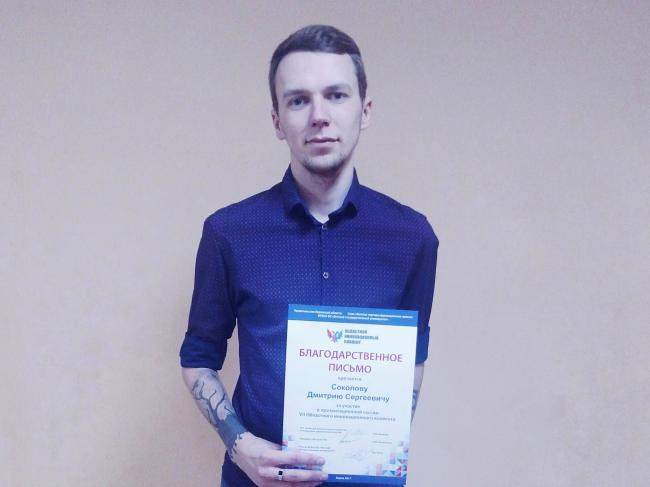The project «Creation of renewable polymeric materials with improved elastic properties for 3D printing» was awarded with the grant of the «UMNIK» program.
Last autumn, the X regional youth research competition under the program «UMNIK» was held at Vyatka state University. During the competition, more than 50 participants competed for the right to receive grants (500 thousand rubles) for the development and promotion of their innovative projects. As a result, 8 winners who successfully passed the approval with the expert Commission in Moscow were determined.
One of the winners was the 4th year student of the specialty «Technology of elastomers processing» Dmitry Sokolov. Under the guidance of Andrey Burkov (associate Professor of chemistry and technology of polymer processing) Dmitry prepared the work «creation of renewable polymer materials with improved elastic properties for 3D printing».
Explaining the essence of the development, the researcher noted:
- We all know about the huge problem of accumulation of plastic garbage. It is no coincidence that many leading research centers and corporations are currently engaged in the development of biodegradable polymers that could be recycled by microorganisms in the environment. If with plastics, the solution to this problem has already moved forward, then with elastic polymers (rubbers, thermoplastic elastomers), there are almost no developments.
In the framework of Dmitry Sokolov's research and innovation project, it is proposed to develop a biodegradable elastic material based on natural rubber and bioplastics (polylactide). This material can be processed in various ways, including perspective method of 3D-printing.
According to the head of the Department of chemistry and polymer processing technology Roman Vesnin, upon completion of the work it is planned to produce a pilot batch of material at the industrial site of the Institute of chemistry and ecology of Vyatsu.

